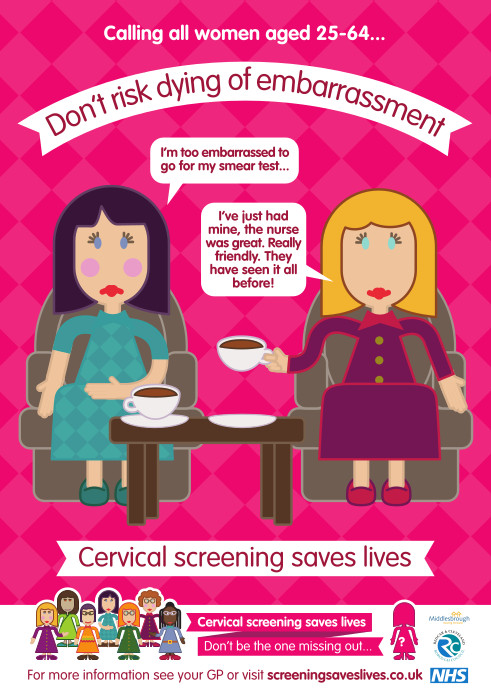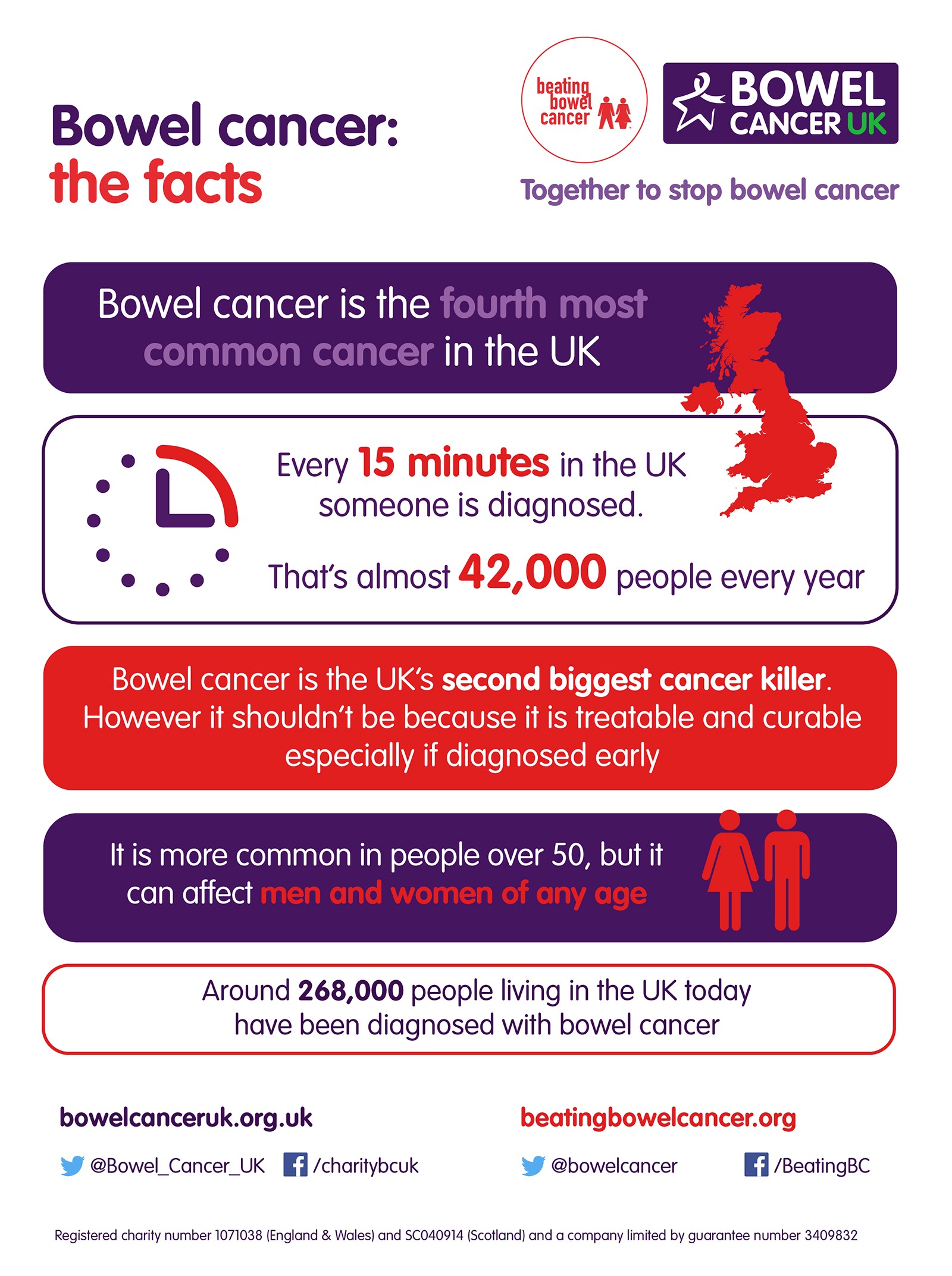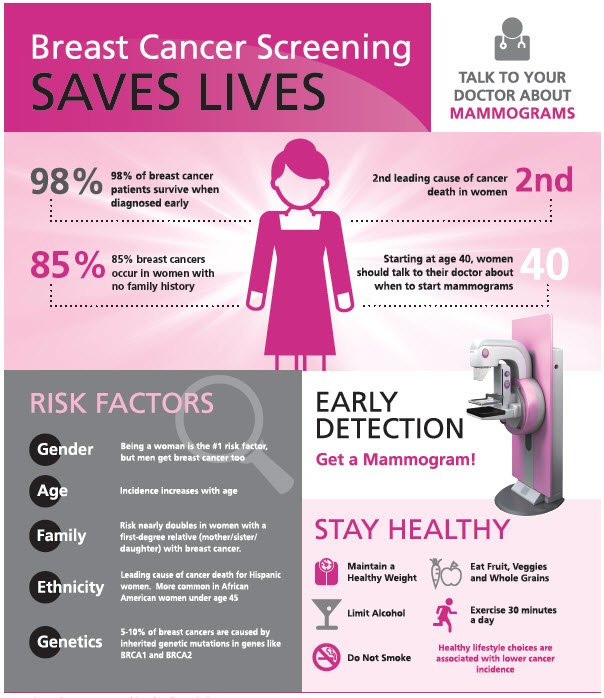Cervical Cancer Screening
- Cervical screening (a smear test) checks the health of your cervix. The cervix is the opening to your womb from your vagina.
- It's not a test for cancer, it's a test to help prevent cancer.
- All women and people with a cervix aged 25 to 64 should be invited by letter.
- During the screening appointment, a small sample of cells will be taken from your cervix.
- The sample is tested for changes to the cells of your cervix.
- Finding abnormal changes early means they can be monitored or treated so they do not get a chance to turn into cervical cancer.
- You'll get your results by letter, usually in about 2 weeks.
Learn more about cervical screening

Text from above image:
Calling all women aged 25-64
Don't risk dying of embarrassment
"I'm too embarrassed to go for my smear test..."
"I've just had mine, the nurse was great. Really friendly. They have seen it all before!"
Cervical screening saves lives.
Don't be the one missing out...
For more information see your GP or visit screeningsaveslives.co.uk
Here is some information in multiple languages: www.gov.uk/government/publications/cervical-screening-description-in-brief
Bowel Cancer Screening
Bowel cancer is a common type of cancer in both men and women. About 1 in 20 people will get it during their lifetime. Screening can help detect bowel cancer at an early stage, when it's easier to treat. It can also be used to help check for and remove small growths in the bowel called polyps, which can turn into cancer over time.
Find out more about how to do the test

Text from above image:
Bowel cancer: the facts
Bowel cancer is the fourth most common cancer in the UK
Every 15 minutes in the UK someone is diagnosed.
That's almost 42,000 people every year
Bowel cancer is the UK's second biggest cancer killer. However it shouldn't be because it is treatable and curable especially if diagnosed early
It is more common in people over 50, but it can affect men and women of any age
bowelcancer.org.uk
beatingbowelcancer.org
Here is some information in multiple languages: www.gov.uk/government/publications/bowel-cancer-screening-benefits-and-risks
Breast Cancer Screening
- Breast screening aims to find breast cancers early. It uses an X-ray test called a mammogram that can spot cancers when they're too small to see or feel.
- But there are some risks of breast cancer screening that you should be aware of.
- As the likelihood of getting breast cancer increases with age, all women aged from 50 to their 71st birthday, and registered with a GP are automatically invited for breast cancer screening every 3 years. In the meantime, if you're worried about breast cancer symptoms, such as a lump or area of thickened tissue in a breast, or you notice that your breasts look or feel different from what's normal for you, don't wait to be offered screening – see your GP.

Text from above image:
Breast Cancer Screening Saves Lives
Talk to your doctor about mammograms
98% of breast cancer patients survive when diagnosed early
85% of breast cancers occur in women with no family history
2nd leading cause of cancer death in women
Starting at the age of 40, women should talk to their doctor about when to start mammograms
Risk Factors:
- Gender: Being a woman is the #1 risk factor, but men can get breast cancer too
- Age: Incidence increases with age
- Family: Risk nearly doubles in women with a first-degree relative (mother/sister/daughter) with breast cancer
- Ethnicity: Leading cause of death for Hispanic women. More common in African American women under age 45
- Genetics: 5-10% of breast cancers are caused by inherited genetic mutations in genes
- Early detection - Get a Mammogram!
- Stay healthy
- Maintain a healthy weight
- Limit alcohol
- Do not smoke
- Eat fruit, veggies and whole grains
- Exercise 30 minutes a day
- Healthy lifestyle choices are associated with lower cancer incidence
Here is some information in multiple languages: www.gov.uk/government/publications/breast-screening-helping-women-decide